Satara Spotlight
How A Nomadic Community Navigates Nutrition Among the Hillsides of Palsavade, India
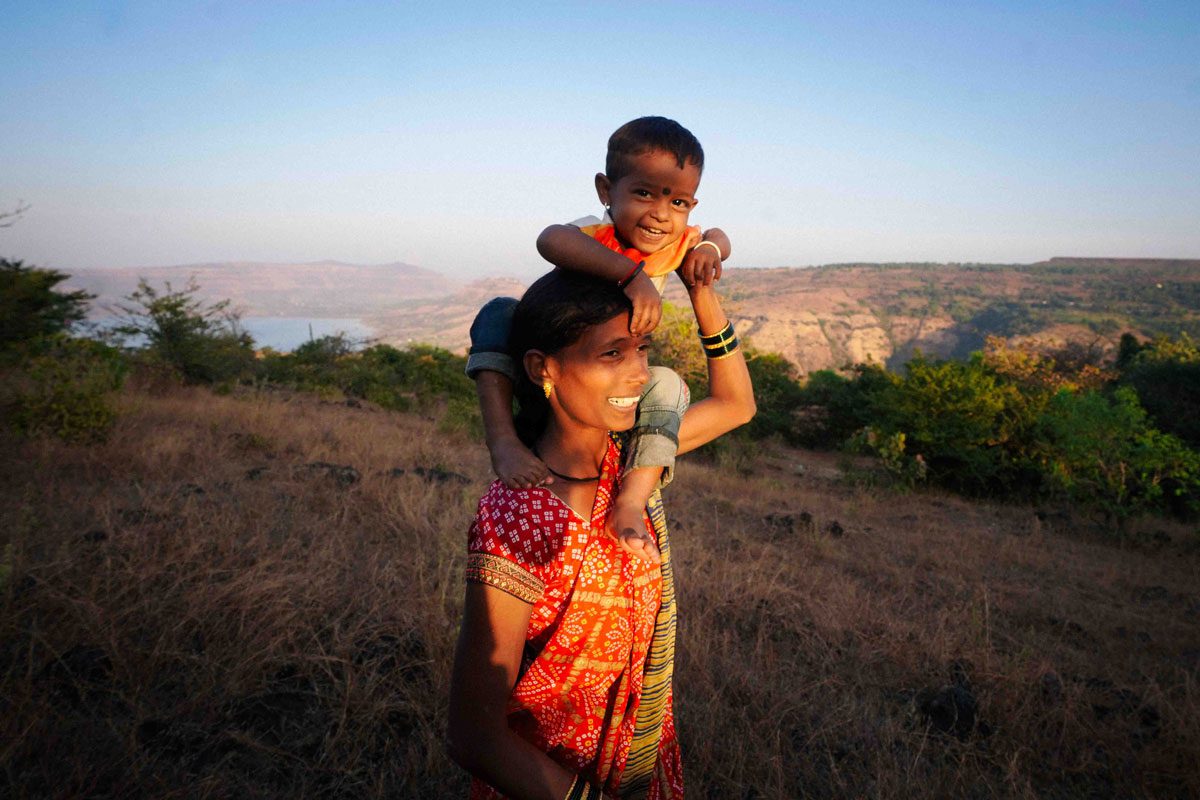
Hidden deep in the hills of Satara district in Maharashtra lives a nomadic tribe of Dhangar people. The village of Palsavade comprises just twenty households, including 15 children, situated among forests and bodies of water.
Due to the hilly terrain and patchy roads, which only decline during monsoon season, local Anganwadi workers (health workers) advise pregnant women to make the 30 km trip to the district government hospital three or four days before their due date. It can be dangerous to wait too long as ambulances rarely make it to the village in time. The only other mode of transport to and from the town is a private milk van that collects milk once a day. Even for primary healthcare, villagers need to walk 15 km and, as a result, often rely on home remedies instead.
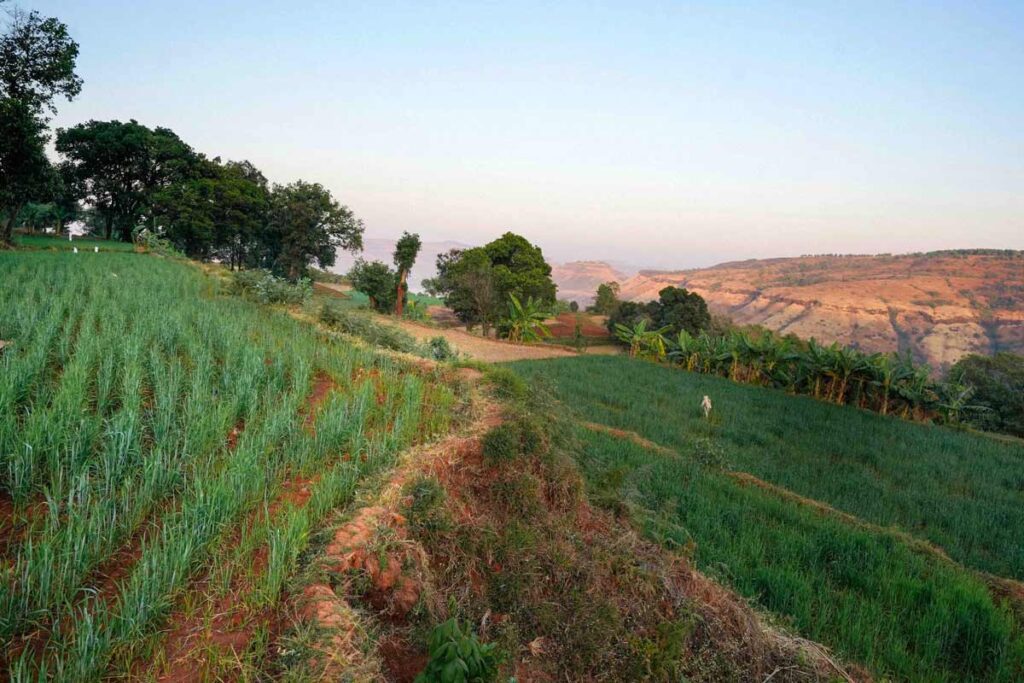
For the residents of Palsavade, their diet consists mainly of rotis made from wheat or rice flour, rice, and milk. Eggs, chicken, or lamb, and vegetables like cabbage, eggplant, as well as yellow lentils, are often on the menu. Very occasionally, they may buy fish from the market. Due to the hilly terrain, and damages sustained by local wildlife (monkeys, wild boar, and wild buffalo), their crops only yield enough to meet their needs, sometimes falling short of that. As the men of the families migrate to cities for work – most often as truck or delivery drivers – it tends to be the women of the village who look after the children, elders, and cattle, as well as fetch water from down the hills. It’s extremely hard and physical work, and women are often the last in the family to eat.
Despite the lack of resources, the local Anganwadi center offers nutritious food to the children and guidance to the mothers. As a result, one local worker reports that the health situation of the village has improved, with the babies most recently born weighing over 3kg.
The villagers of Palsavade accept their home and the lifestyle that comes with it, striving to live in harmony with nature and their community.
Vitamin Angels works in “hard-to-reach” areas across India to improve access to health care and raise awareness of the need for proper nutrition. Working alongside program partners, we reach children 6-59 months of age with vitamin A, a micronutrient critical to healthy growth and development that supports a strong immune system and vision, helping create a better future for those living in rural villages.
A Closer Look – Three Families Nourishing Children’s Health
Mealtime with Toddler, Swati
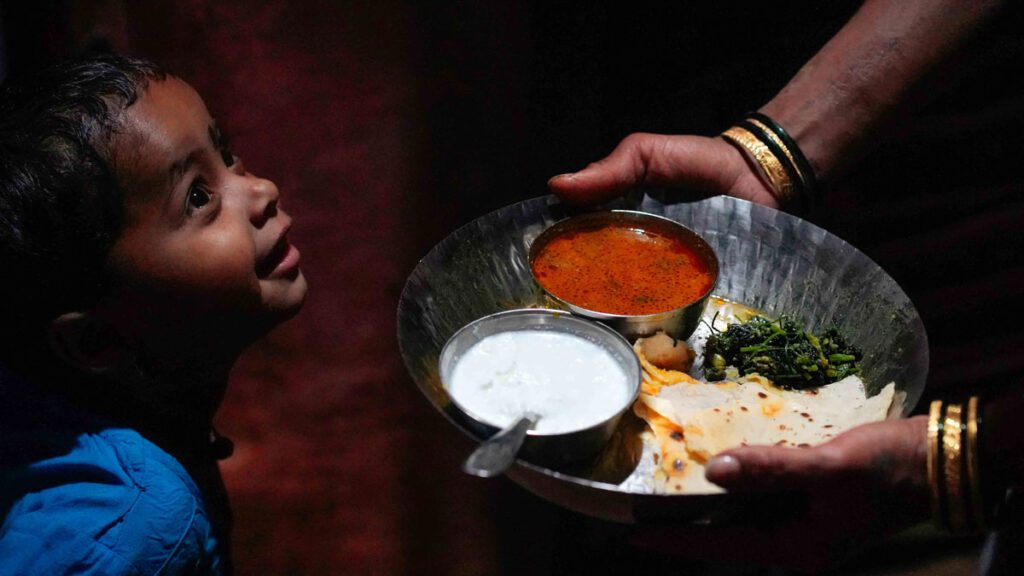
Swati finds joy in preparing meals for her 2-year-old daughter, Pari, despite the challenges that come with trying to feed a toddler. Pari will often sit down to eat for a few minutes before jumping up and running away, much to her mother’s amusement. “That’s how she likes to eat,” laughs Swati.
For dinner, Swati prepares a dish featuring green leafy vegetables, garlic, cumin seeds, and a single spoonful of refined oil, along with some potato curry left over from lunch, rice flour roti, and rice. The children always eat first, with Swati later in the evening, when her husband, who works as a migrant truck driver, is away on the job. The family’s monthly income is around ten thousand rupees a month ($120 USD). A healthy diet, in addition to regular vitamin A supplementation helps support Pari’s heath growth and development.
Sangeeta Perseveres for Her Boys
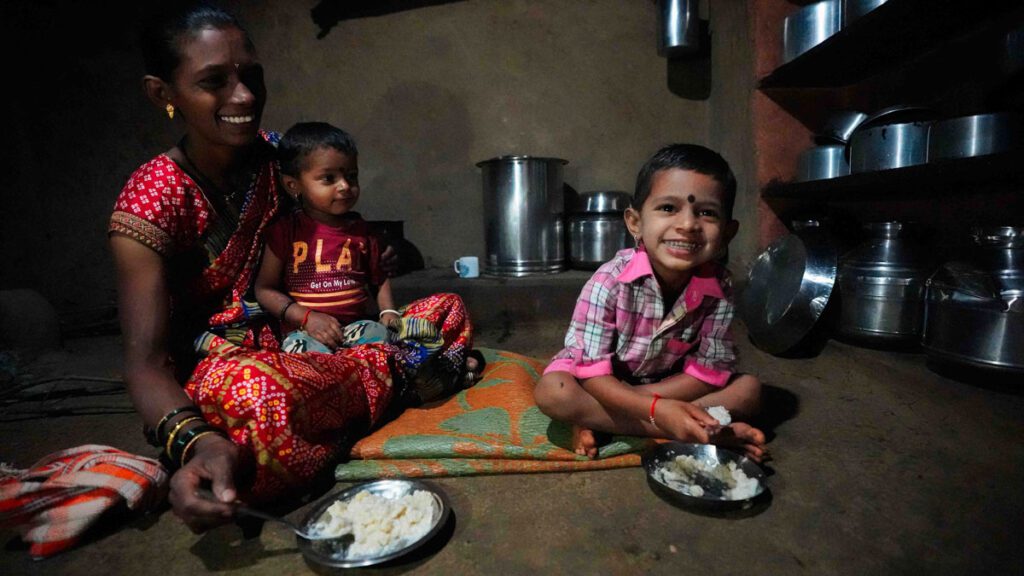
Sangeeta, a 27-year-old mother of two, is devoted to caring for her children, Prince, aged 4.5, and Devansh, aged 2.5. Despite her love and attention, the family faces financial difficulties due to her husband’s inconsistent employment. This has caused challenges, negatively impacting Sangeeta’s health and leading to slower growth and development for Devansh. At the time of his birth, Devansh weighed just 2.5 kg (~5.5 pounds), on the border of low birth weight (LBW). However, thanks to Sangeeta’s unwavering commitment and access to vitamin A, Devansh is gradually gaining weight – he’s now up to 9.16 kg (~21 pounds) – improving his overall health status.
Reshma Shows Care Through Cooking
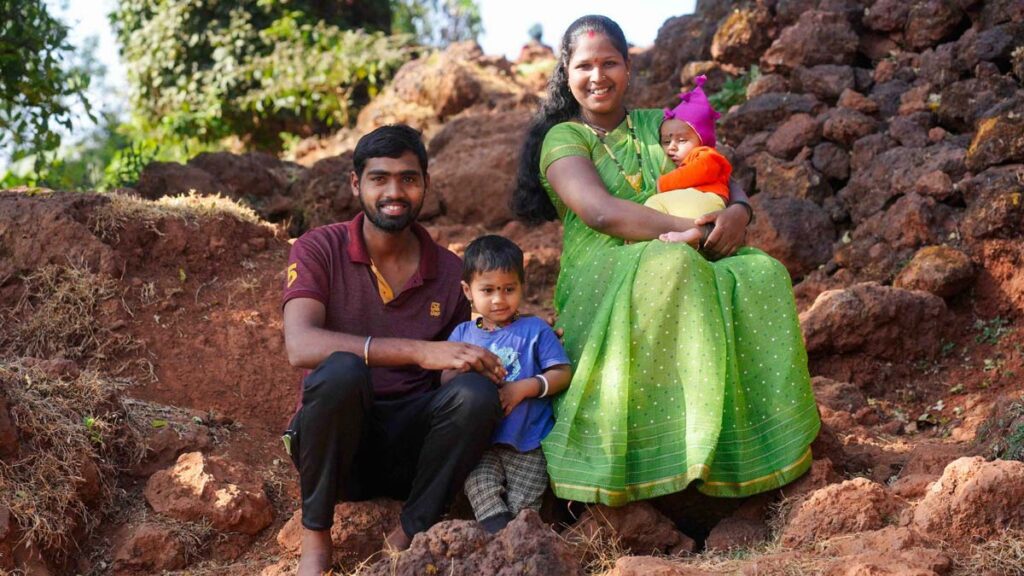
“Love. Love and mother’s touch are important for the children to feel safe,” said Reshma, mother to 2-year-old Laddoo and 3-month-old Shavansh. “It makes them happy.”
While taking care of her family, Reshma also puts her love into action by cooking special meals, like one featuring dry curry of radish and its leaves, rajma (kidney beans), rice, and rice flour roti. With a watchful eye on Laddoo, who tends to wander off into the hills, Reshma ensures his safety and wellbeing by taking him to receive his regular doses of vitamin A.
